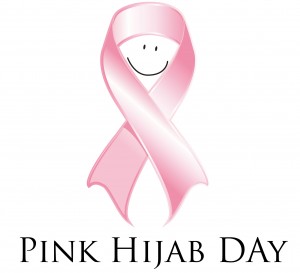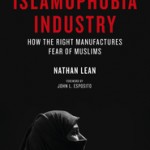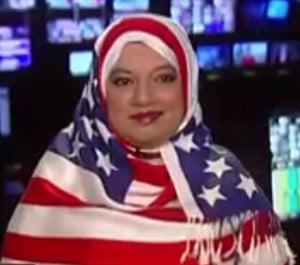It’s that time of year again: the weather is getting cooler, the leaves are changing colour, my students are stressed about midterm season… and for the past couple weeks, the Pink Hijab Day invitations have been popping up in my newsfeed.
Pink Hijab Day is an annual event, taking place in October each year (this year’s was actually yesterday in most places). According to the Global Pink Hijab Day 2012 Facebook event, the event “was intended to remove stereotypes of Muslim women by having Muslims engage in dialogue about breast cancer awareness, joining walks in groups while wearing pink headscarves, and holding other events promoting awareness and support for the cause.” From what I’ve seen of the descriptions of specific events, these tend to involve bake sales or other fundraisers, lots of Muslim girls (and some Muslim guys) wearing lots of pink, some information about breast cancer, some information about Muslim women, and at times even a chance for non-Muslim women to try on headscarves themselves (pink ones, of course). The event is described as being international, but nearly all of the news that I’ve seen on it has covered events in Canada and the United States, so that’s the context I’ll focus on here too.
Before I continue, let me make a few things clear:
1. Breast cancer is a really terrible disease, and one that affects increasing numbers of women worldwide. I say that as someone with a number of friends and relatives who have gone through it, and I don’t want anything in this post to sound like I’m taking it lightly.
2. Many people work really hard to fight breast cancer, whether this consists of educating people about it, raising money for cancer research and treatment, providing medical or emotional support for those experiencing breast cancer, or many other efforts. These are all important and much needed, and I’m glad that so many people are active in this area.
3. Following from the previous point: the people who organise Pink Hijab Day events around the world usually work really hard and have really good intentions, and I have a lot of respect for that. Nothing that I say in this post is meant to belittle or disrespect the efforts of any individual organisers.
But having said all of this, I have to admit that Pink Hijab Day makes me really uncomfortable. I hate to be the Grinch Who Stole Pink Hijab Day, but there are a few things going on that I just can’t get behind.
Uncritical celebrations of breast cancer “awareness”

Some Pink Hijab Day events seem do a better job of meaningful education around breast cancer than others, so this criticism likely doesn’t apply to all of them. In general, though, there is seems to be a widespread assumption in a number of “awareness” campaigns that simply saying that a particular action is for breast cancer awareness automatically makes the action meaningful and a good thing to do. For example, a couple years ago, there was something that went around Facebook where you had to post the colour of your bra in your Facebook status, and this was done “for breast cancer awareness;” the following year, the trend was to write “I like it…” and finish the sentence with where you normally put your purse, which made everyone blush and giggle because it looked like maybe people were talking about (gasp!) sex. The thing is – and this should be obvious – saying that something is for the sake of breast cancer awareness doesn’t necessarily make it useful at all, especially if no information about breast cancer is actually exchanged. I mean, everyone is aware that breast cancer exists; many people, depending on their own personal experiences, are all too aware of its existence, and don’t need pink stuff to remind them. (I realise that this has not always been the case, and that it has not always been this easy to talk about breast cancer.) Seeing people wearing pink, or knowing that one friend is wearing a purple bra and another “likes it on the table,” aren’t, on their own, going to remind me to pay attention to my own breast health, or teach me about ways to prevent breast cancer. These things can even turn “breast cancer awareness” into something fun and thrilling, or just plain trivial.
I’m sure there are some Pink Hijab Day events that do the awareness thing really well, but there are other events (including most of the ones I’ve been to) that are heavy on pink but incredibly light on useful information about breast cancer. Wearing a pink scarf (or kufi, for the men), even if this is done “for breast cancer,” does not, in and of itself, do much to increase knowledge in any meaningful way.
This really shouldn’t be about Islam
I’m not saying that Muslims shouldn’t be involved in breast cancer fundraising, or education or awareness campaigns about breast cancer. I actually think that’s a great idea; it’s nice to see Muslim communities active for causes that don’t fall under the typical “Muslim issues,” and if the education/awareness part is done right, it can help Muslim women learn more about how to look out for their own breasts, how to avoid environmental toxins that might lead to breast cancer, how to support others who are living with breast cancer, and so on. So, absolutely, it makes sense for Muslim communities to be paying attention to this issue, and if this was the main focus of Pink Hijab Day, it would be a huge improvement.
When it becomes also a matter of educating non-Muslims about Islam and Muslim women, this starts to feel a bit weird, almost as if Muslims are capitalising on the breast cancer issue as a way to further our own cause. There is, absolutely, a time and a place for awareness about Muslims or about some of the stereotypes related to hijab, but I do not think that this is it. If people see Muslims active in fighting breast cancer or educating about it, and learn something from that about Muslims and community involvement, then great, but otherwise, let’s keep the focus on breast cancer for now, and talk about Muslim women another time.
Moreover, I’ve never seen Pink Hijab Day information that focused specifically on breast cancer as it might personally relate to Muslim women specifically; the two issues get constructed as if they’re completely separate, rather than looking at what the needs might be within Muslim communities. There is, in fact, a lack of available culturally- and linguistically-appropriate information on breast cancer for Muslim communities in many places (the United States, for example), and if Pink Hijab Day is a chance for Muslims to think about breast cancer, this is an important issue that we should consider. MMW writer Safiyyah has written about how Muslims need to be more open in talking about breast health, reminding us that “there is no shame in religion.”
So if we are going to use Pink Hijab Day to talk about Islam and Muslims, maybe it would make the most sense to focus our attention on breast cancer as it relates to needs and taboos within Muslim communities, rather than on dismantling misconceptions about the headscarf.
And do I even need to point out how annoying it is when education on Muslim women and Islam gets framed primarily around our clothing?
Playing dress-up in cute pink hijabs
Don’t get me wrong; I have nothing against the colour pink. I have a few bright pink scarves of my own, and can regularly be seen in pink hijabs when at Friday prayers or other religious events. When it comes to breast cancer events, I’ve seen people wear pink as a show of pride and victory in their own battle against the disease, or of showing solidarity with survivors, and it’s clear that the colour takes on a lot of meaning in that context.
It’s not exactly neutral, though. A number of people have raised the issue that buying pink things is not necessarily an effective way of fighting breast cancer. And it’s not just the consumerism side that this pink stuff becomes a problem. The colour is so highly gendered, at least in today’s Western culture. Through much of the pink marketing around breast cancer, breast cancer becomes cute and fun, and often also quite sexualised. It’s hard to promote serious conversations about women’s health when so much of the awareness stuff is so superficial and silly.
If the colour pink is of questionable value to breast cancer causes, what of its use to those trying to educate about hijab?
Some of the stories that I’ve seen from Pink Hijab Days in various locations are of non-Muslim (or non-headscarf-wearing Muslim) women trying on pink scarves, to learn “what it’s like to wear hijab” (at least, for about five minutes, or a day at most). I’m not a huge fan of this idea in general; the hijab-tourism is something we’ve written about before on MMW, and I won’t rehash it here (and, as above, I don’t think Pink Hijab Day should really be about hijab at all). But it’s the pink thing in particular that gets me. It’s hard to ignore the ways that pink gets constructed as ultra-feminine, and often girly and juvenile, and thus as relatively harmless. I’m having a difficult time imagining a “Black Hijab Day” having the same effect; black hijabs, as we know, are what Those Scary Other People wear. So in making pink hijabs the focus here, this game of hijab dress-up turns into something cute and fun, but I wonder how effective it is in challenging stereotypes related to people wearing hijab in colours or styles that are less bright and perky.
So what would I like to see out of Pink Hijab Day?
- In depth and useful education on topics including breast cancer prevention and detection, as well as how to support friends and family members living with the disease.
- More information on environmental toxins that may contribute to cancer, and on how to avoid these and to lobby for safer consumer products and overall environments.
- Critical reflection on where any money raised gets directed.
- More attention to the specific needs of women in Muslim communities when it comes to education on breast cancer.
- Efforts to support (Muslim or non-Muslim) women in the local community who have breast cancer: baking meals, looking after children, driving or accompanying women to treatment, and so on.
- A significantly reduced focus on education about Islam, which can be done at other times.
Talking about breast cancer is important, and I hope that Pink Hijab Day events can continue to improve so that the conversations are educational and meaningful to the communities in which they take place.












